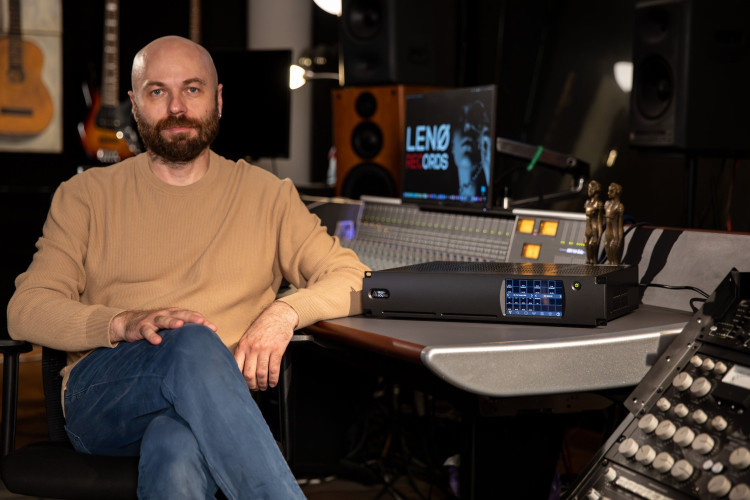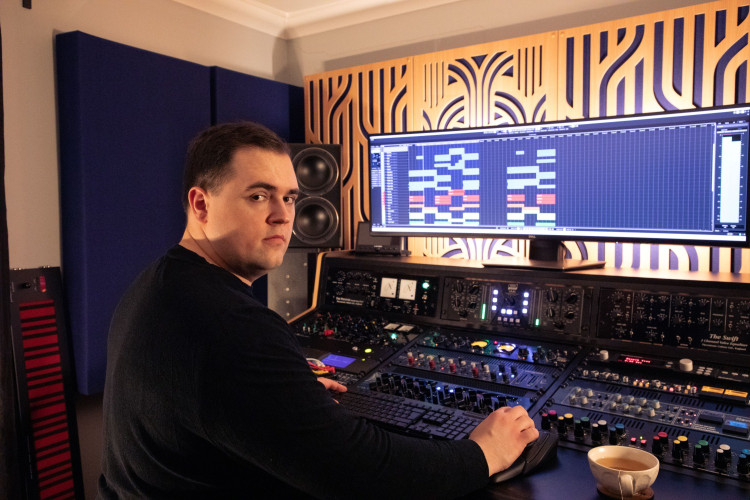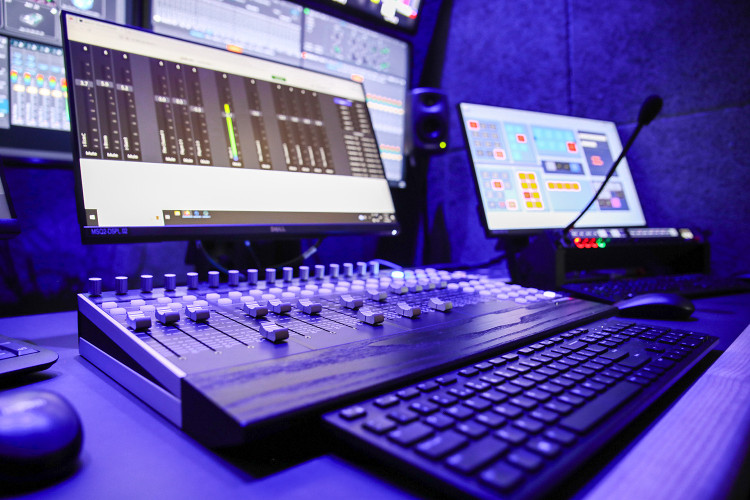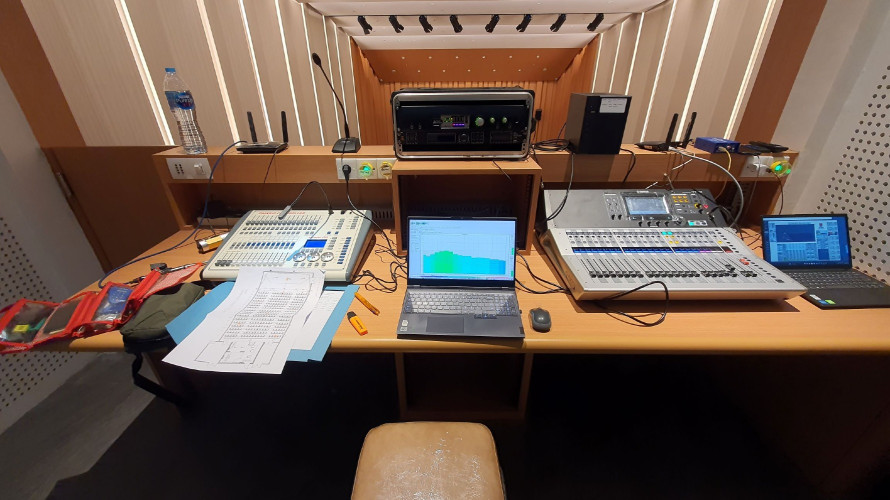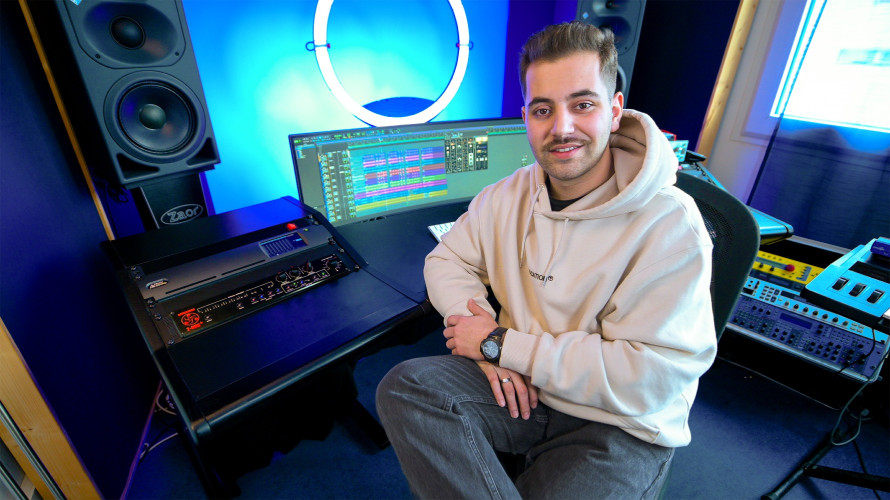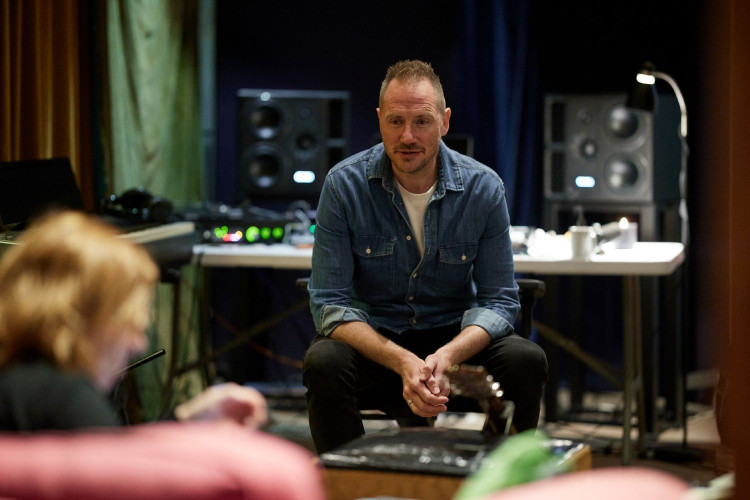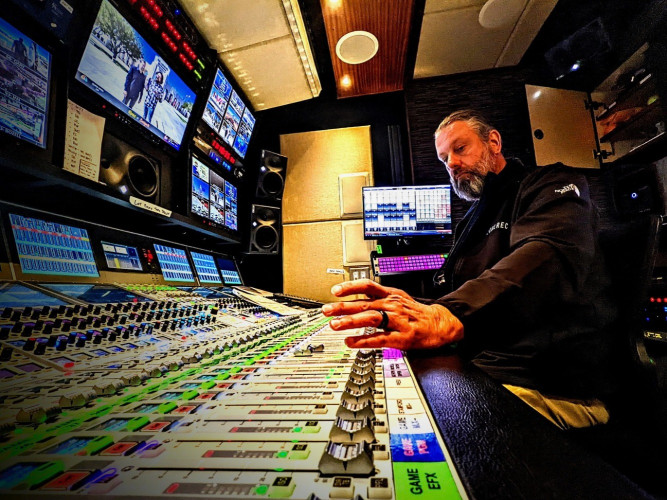After a six-year love affair with his three Prism Sound Titan audio converters, Georgian producer, composer and sound designer George Gvarjaladze has swapped them for a new Prism Sound Dream ADA-128 modular conversion system.
“The unit’s flexibility and smaller footprint were key reasons why I chose to replace my three Titans with an ADA-128,” says George, who is mostly known as Gvaji, his teenage nickname. “Just one box can do the job of all three Titans – in fact it could do the job of eight! – and as soon as I heard it was being released, I wanted to be among the first studios to own one.”
Designed to suit the needs of a wide range of audio professionals, Prism Sound’s Dream ADA-128 is a modular audio conversion system offering up to 128 channels of 32-bit A/D and D/A conversion at sample rates of up to 768kHz. It is both a conversion system and a high-performance, networkable audio distribution and processing system, with a flexible 2RU mainframe that can be fitted with up to 16 analogue and digital IO modules (each of which nominally provides eight input or output ports, or both). Up to four host modules provide bidirectional multi-channel connections to host computers, workstations, networks etc, with the ADA-128 providing free routing between all of these inputs and outputs under detailed user control, as well as a wide range of processing functions.
“A lot of the work we do has a high track count, so having plenty of DSP power is essential for painless mixing,” Gvaji says. “I’m not quite at the point where I need 128 channels, but it is great to know they are there if I need them. And, of course, I’m getting Prism Sound audio quality, which is so important. All the best people use Prism Sound and I like being among that company.”
Originally a musician who played guitar and bass with various artists such as Irakli Charkviani, Giga Mickaberidze, and Lado Burduli, Gvaji is now a key figure in Georgia’s music and pro audio industry. As head of Lenø Records, a commercial recording studio and label based in Tbilisi, he works closely with a range of artists handling both their studio and live sound needs. He also teaches at Tbilisi State Conservatoire and CES and designs recording studios, film production houses, TV and radio stations, venues and clubs.
Lenø Records was established in 2019 as a new incarnation of Gvaji Records, which Gvaji had been running for a number of years. The name change was an homage to Gvaji’s teenage daughter who tragically died earlier that year. Many artists who knew Gvaji wanted to support him through that difficult time and were keen to join Lenø Records. As a result, it now defines the Georgian music scene in almost every genre, offering recording, mixing, mastering, and post production services to a wide range of clients. Among the local and international artists who have worked with Gvaji at Lenø’s studio are Nikoloz Rachveli, Katie Melua, Lisa Batiashvili, Anita Rachvelishvili, Gori Women's Choir, Sergi Gvarjaladze, Nino Katamadze, LOUDspeakers and Stephane. Amongst Lenø’s clients are Deutsche Grammophon, Sony Classical and BBC. All audio services for Tsinandali Festival are also handled by Lenø Records. The studio itself has a large live room and a control room equipped with an SSL AWS 924 Delta console, a Pro Tools HDX system and PMC IB1S monitors powered by Bryston amps.
Gvaji’s affection for Prism Sound technology dates back to 2002 when Pro Tools HD was released, and, on behalf of the company he was then employed by, he decided to test interfaces that could work alongside it. Prism Sound’s Dream ADA-8XR converters came out on top and was duly installed, but when Gvaji left to set up his own studio he wasn’t in a position to afford one. At that point all other Prism Sound units on the market wouldn’t allow him to link directly to his HDX DSP system, so he opted for Prism Sound’s Orpheus audio interface and daisy chained three together, giving his 24 inputs to use with his SSL console.
The situation changed in 2015 when Prism Sound introduced the MDIO expansion module for its Titan and Atlas interfaces. This immediately solved Gvaji’s problem. He bought three Titans and was very happy with the audio quality they delivered.
“I adored my Titans and thought nothing could better them, but when I got the Dream ADA-128 and set it up in my studio, I was blown away by the audio quality,” he says. “It sounds fantastic, and I can hear every detail of my music, including every instrument. It gives me the ability to make the right decisions when I am mixing, and I am completely in love again.”
Gavji adds that the Dream ADA-128 makes it much easier to connect equipment that has different clocking and sampling rates. He has also future proofed his studio because he can add to the system by investing in MADI and Dante cards, as and when he needs them.
“It is small enough and quiet enough to have it next to me in the control room,” he adds, “and I can control it remotely via a browser from an iPad or even from my phone. The fact that it is so portable and has mic inputs means I can also use it in live situations, although I admit I haven’t tried that out yet!”




